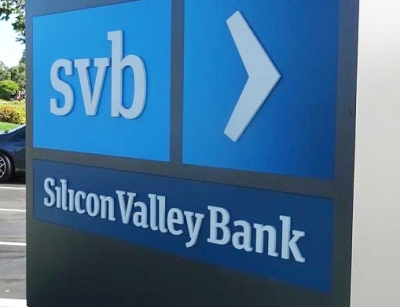Washington: The Federal Reserve is scheduled Friday to release a highly-anticipated review of its supervision of Silicon Valley Bank, the go-to bank for venture capital firms and technology start-ups that failed spectacularly in March, setting off a crisis of confidence for the banking industry.
The review, due to be released at 11 a.M. Eastern, is expected to examine how regulators may have missed warning signs in Silicon Valley Bank’s business and whether they could have been addressed before the bank failed. Further, the report is expected to look at what regulators could do better to prevent a similar bank failure in the future.
Federal regulators seized Silicon Valley Bank March 10 after customers withdrew tens of billions of dollars in deposits in a matter of hours. Two days later, they seized Signature Bank of New York.
Although regulators guaranteed all the banks’ deposits, customers at other midsize regional banks rushed to pull out their money — often with a few taps on a mobile device — and move it to the perceived safety of big money center banks such as JPMorgan Chase.
Although the withdrawals have abated at many banks, First Republic Bank in San Francisco appears to be in peril, even after receiving a $30 billion infusion of deposits from 11 major banks in March. The bank’s shares have plunged 57 per cent this week after it revealed the extent to which customers pulled their deposits in the days after Silicon Valley Bank failed.
The nation’s banks are regulated by a troika of regulators: the Federal Reserve, the Office of the Comptroller of the Currency and the Federal Deposit Insurance Corporation. All have been criticized for potentially missing signs that Silicon Valley Bank and Signature Bank might be in trouble.
Michael Barr, the Fed’s vice chair for supervision, appeared at two hearings in Congress last month and asserted that Silicon Valley’s own management was largely to blame for the bank’s failure.
He also acknowledged that Federal Reserve bank supervisors had warned Silicon Valley management as early as the fall of 2021 of risks stemming from its business model, but its managers failed to take the steps necessary to fix the problems.
Republicans at both hearings had criticised federal regulators for failing to act with the proper sense of urgency. Barr said the Fed’s review would look into why Fed officials couldn’t compel the bank’s management to fix the problems.
The report is also likely to look at whether a banking law passed in 2018 contributed to the recent bank turmoil by softening some of the restrictions on large banks put in place under the Dodd-Frank Act.
Left-leaning policymakers contend that the law, passed in a Republican-controlled Congress with moderate Democrats in support and signed by then-President Trump, may have exacerbated the issues at these banks by not having them undergo annual stress tests.
AP






































